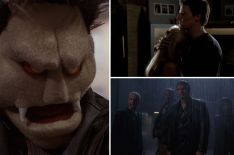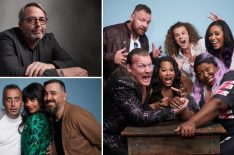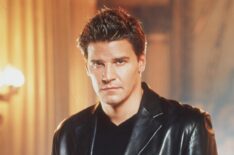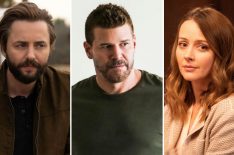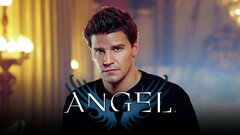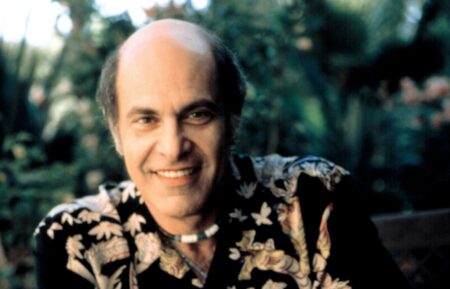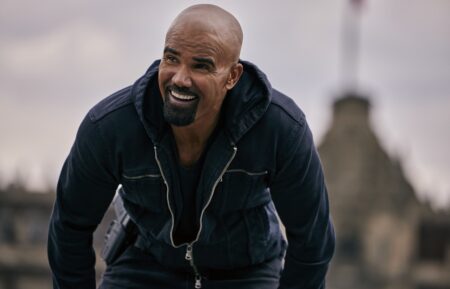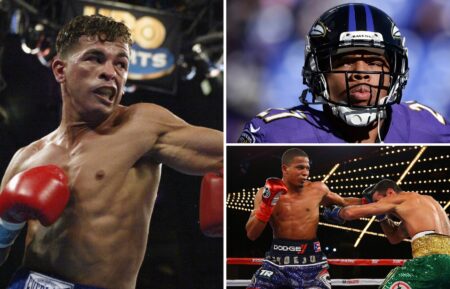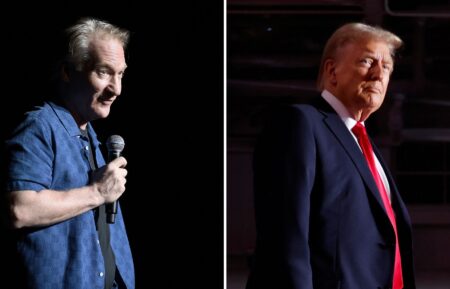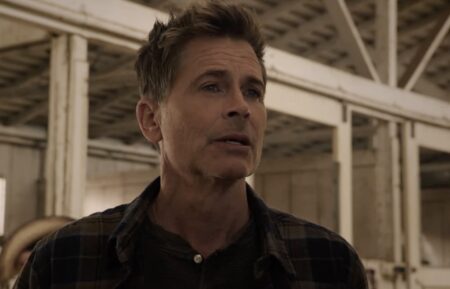‘Angel’ at NYCC: The Cast Reflects on the 20th Anniversary
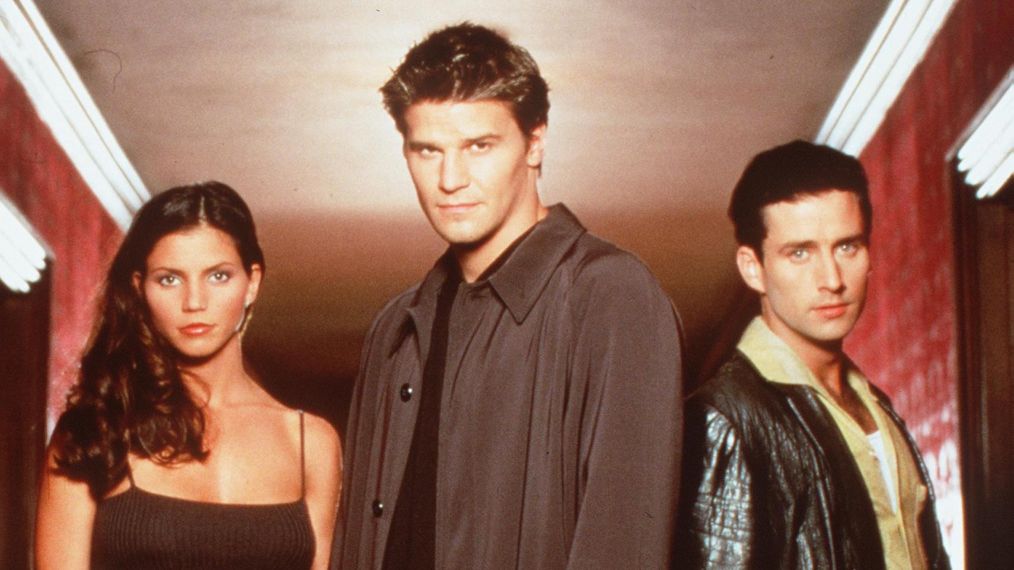
Can you believe it’s been 20 years since Angel premiered?
The cast celebrated the milestone anniversary with a panel at New York Comic Con. Series stars Charisma Carpenter, Alexis Denisof, Amy Acker, J. August Richards, and James Marsters joined moderator Clare Kramer (Buffy the Vampire Slayer) to look back on the groundbreaking show.
Carpenter on transitioning off Buffy: “There was more responsibility. It was a smaller cast.” She was worried about a “safety net” to return to Buffy if the show was canceled. She was “excited” to watch Cordelia grow and called her character “the greatest role of my life.”
She remembered when it came to “Hero,” and they lost Glenn Quinn. She called it “bittersweet in that it was great for my character and for me personally, but losing that character was tough and another big responsibility.”
On Carpenter playing the popular “mean girl”: Marsters recalls telling Carpenter when they worked on Supernatural together, “I’m so sorry, I’ve been judging you for so long. You fooled me. You play a really good mean person.” Carpenter replies: “So do you.”
Richards on Gunn’s evolvement: “I was really intimidated because he was supposed to be this ghetto, street youth, rough around the edges. … I had just taken this really great acing class that taught me to believe these characters exist inside of me.”
He recalls his character being very anti-vampire when he met Angel and the resulting arc of people you think are horrible surprising you and finding common ground for mutual results. Gunn “formed a family” with the other characters.
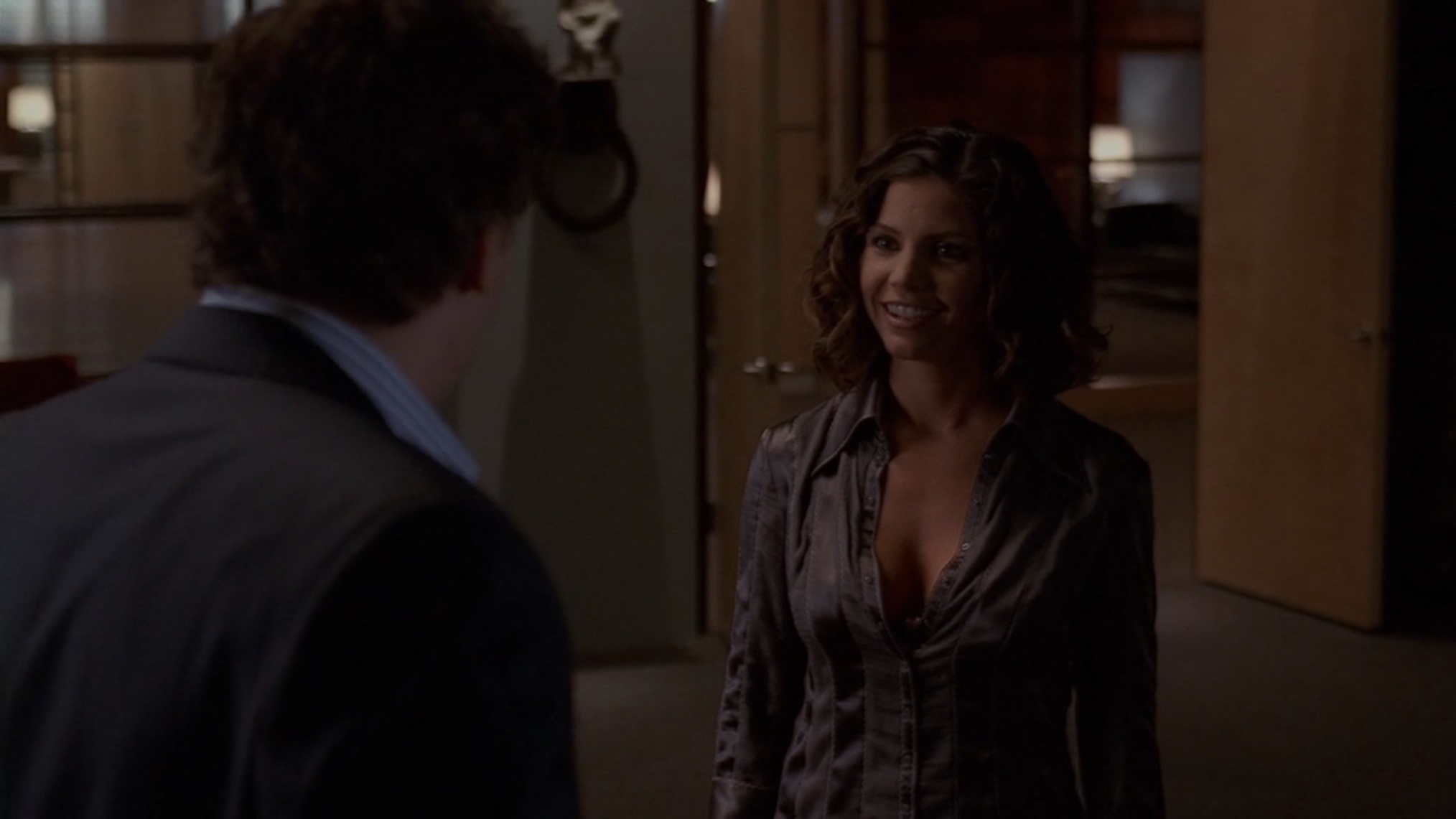
(The WB)
Marsters on Spike sticking around: Originally, his job was “to die.” “He was just supposed to be Drusilla’s boy toy for five episodes and then Angel’s first victim on Buffy.
“[Joss] didn’t believe evil was cool. That’s why his vampires were hideously ugly when they bite someone because he doesn’t want that to be a sensual shot.”
Spike was just supposed to be “a soulless vampire that didn’t care about anybody,” but he learned as an actor to find what connects with the audience, such as any kind of love. He found that in Drusilla and undercut Whedon’s theme from the beginning “because I needed a job.” “I pretty much played Spike with a soul from the beginning, and that was wrong,” he says.
Denisof on Wesley’s journey: He originally had two episodes on Buffy, but all the small steps “added up to an enormously long journey I’m grateful for.” He says the writers had a gift to throw something up in a scene, see what was working in dailies, and then go from there.
Carpenter watched “Spin the Bottle” recently and points out Wesley’s “I got my throat slit and my friends abandoned me” as a pivotal moment for when he went dark, “and you do it so well,” she tells Denisof.
Denisof then remembers Wesley and Cordelia’s kiss from Buffy and his and Carpenter’s teeth banging. “We didn’t have those problems,” Richard says of him and Acker.
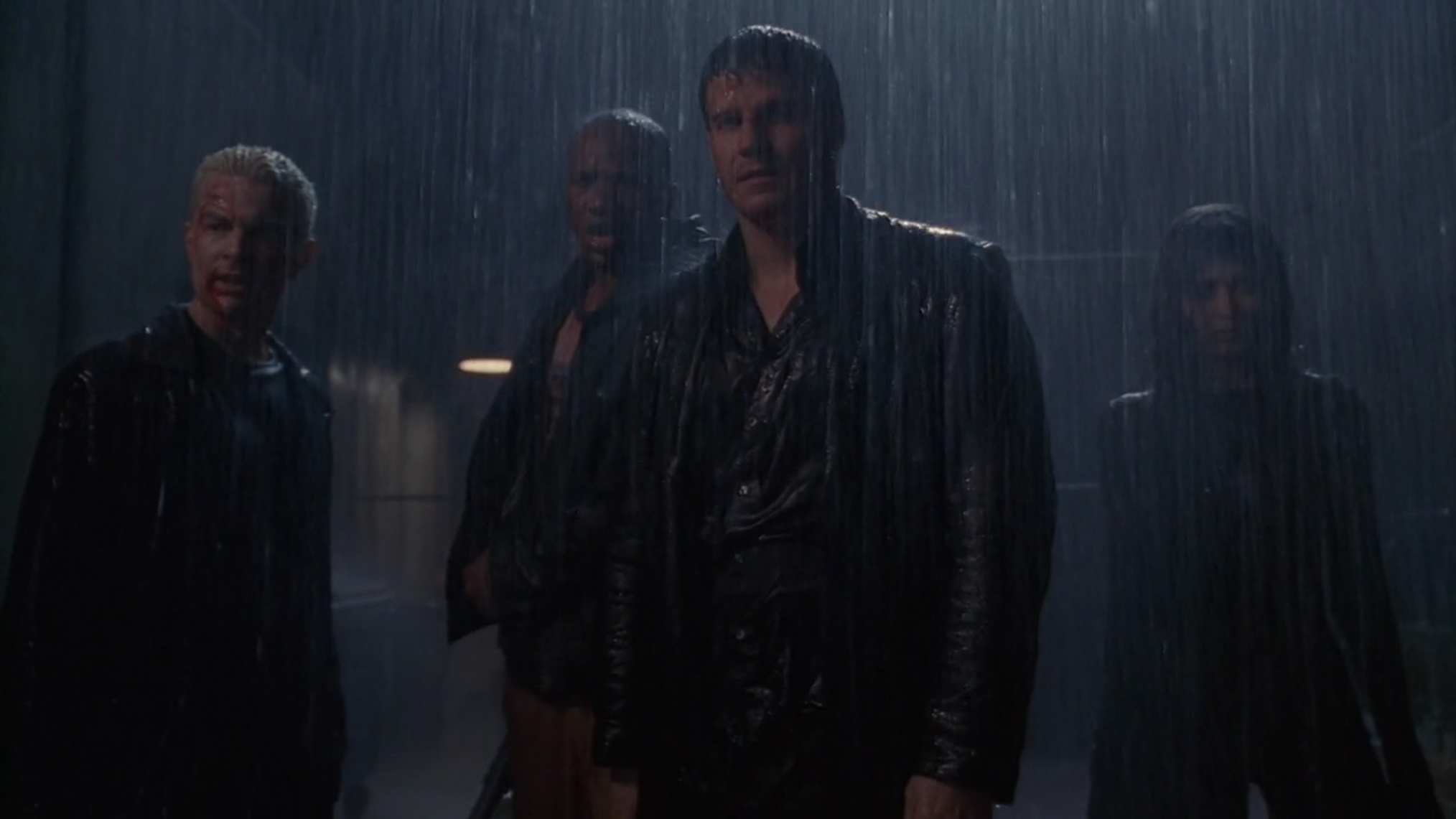
Acker on the pitch for Illyria: Whedon told her he was killing off Fred and waited a long time before revealing she would be coming back as a demon goddess. “No one’s going to argue about that,” she says.
Whedon gave her and Denisof plenty of time leading into it and even gave them scenes at Denisof’s wedding. They even tried some scenes in Whedon’s kitchen and used the color lights to settle on the blue of Illyria.
Marsters on anything from comics he wishes he could have done: “Survived.”
Marsters on the finale: When they filmed it, he saw it as them giving Angel “the ultimate heroic arc,” in that he knew he was going to lose the fight but had to try to save others. He thought, “we’re definitely dead. It’s less powerful if we’re not.”
On anything they wanted to explore more from either Buffy or Angel: “She would’ve been great to explore Season 5,” Carpenter says of Cordelia. “I didn’t want her to die.” She wanted Cordelia to live on in some way and originally didn’t want to come back just to be killed off. But once she heard the plan for her return, “if you’re going to go, that’s the way to go.”
Marsters recalls “wanting a verb on the call sheet” on Buffy. The small description of a scene never included “Spike does anything.”
Acker notes she didn’t get the “full experience” of either love interest. Whedon actually wrote a Shakespearean love triangle scene for Fred, Wesley, and Gunn.
Richards wants to know what happened to Gunn’s parents.
On their favorite off-screen moments: Acker says they were sitting on a couch Friday when a woman came up to them and said she didn’t know who they were “but why do you like each other so much?”
Marsters comments that he never felt more embarrassed to be an actor and the dichotomy between an actor and a stuntman than during “Smile Time.” After puppet Angel punched Spike into the air, it was the stuntman who went up 18 feet in the air and did a dead drop.
On their favorite episodes: The actors all enjoyed when they all got to be together, specifically calling out “Spin the Bottle” and “Waiting in the Wings.” Denisof enjoyed Fred’s transition to Illyria, and Marsters liked “Smile Time.”
On their favorite villains: Richard chooses Gina Torres, Marsters Nathan Fillion, and Carpenter John Ritter on Buffy because she saw it as the show being taken seriously. “Does Spike count?” Acker asks.
On what Angel means to each of them in one word: Marsters says “growth,” Acker and Richards “family,” Denisof “life,” and Carpenter “dedication.”

